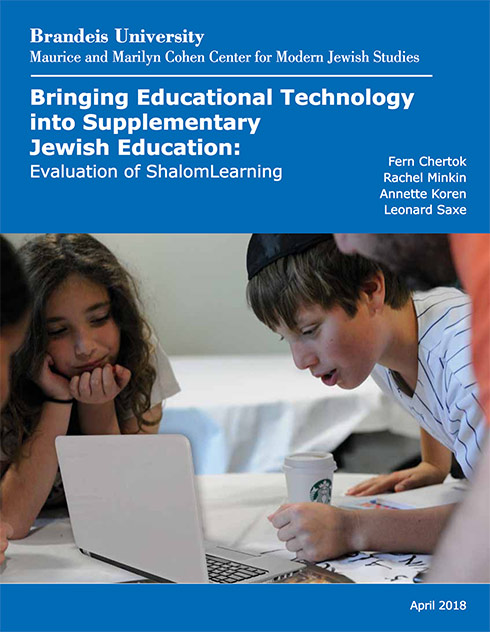Bringing Educational Technology into Supplementary Jewish Education: Evaluation of ShalomLearning
Fern Chertok, Rachel Minkin, Annette Koren, and Leonard Saxe
April 2018
 Complementary Jewish education, the learning venue for most Jewish children in the 21st century has been critiqued for its lack of focus on Jewish values, leaving students with little ability to see connections between what they are learning in supplementary school and their everyday lives. ShalomLearning (SL) was designed to make supplementary Jewish education an attractive, relevant, engaging, and content-rich experience for Jewish students, their families, and teachers.
Complementary Jewish education, the learning venue for most Jewish children in the 21st century has been critiqued for its lack of focus on Jewish values, leaving students with little ability to see connections between what they are learning in supplementary school and their everyday lives. ShalomLearning (SL) was designed to make supplementary Jewish education an attractive, relevant, engaging, and content-rich experience for Jewish students, their families, and teachers.
SL combines a values-based, spiral curriculum for grades two through seven, with a “blended education” approach, harnessing technology to Jewish education. This report describes a two-year evaluation study of SL conducted by CMJS. The research addressed a broad array of questions about the implementation, outcomes, and impacts of SL for students and teachers in synagogue schools.